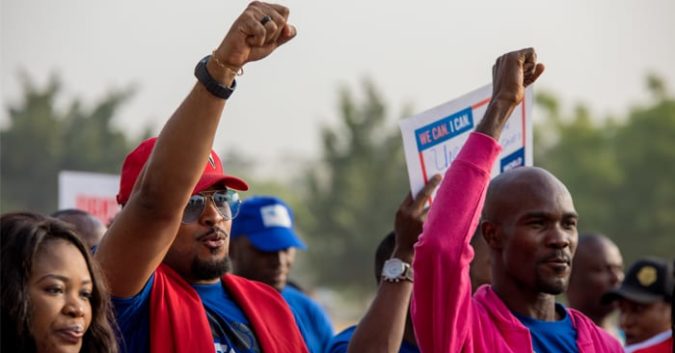About 9.6 million people worldwide died from cancer in 2018. That’s more deaths than from HIV/AIDS, malaria, and tuberculosis combined. But by 2030, according to the World Health Organization (WHO), the annual death toll from cancer is expected to climb to 13 million.
It’s tempting to look at such overwhelming statistics and feel powerless to slow cancer’s devastation. But we’re not powerless, says the Union for International Cancer Control (UICC), this World Cancer Day.
Organized by the UICC each year on February 4, World Cancer Day is a global movement to empower us all to save lives: for most of us, by raising awareness and dispelling myths about cancer, and for governments to take action against it. Since its inception in 2000, World Cancer Day has provided billions of opportunities for cancer survivors and prevention advocates to make cancer information more accessible.
Can we keep up the positive streak? Here’s what you need to know to participate in World Cancer Day.
What Is World Cancer Day?
World Cancer Day is a campaign to educate the world about cancer – each year, through a new theme.
This year is the first of a 3-year theme called “I Am and I Will.” It means whoever you are, you can reduce the impact of cancer for yourself and others simply by raising awareness. Increased awareness and knowledge about cancer can help us recognize early warning signs of the disease and make better choices for our health, both of which are the most effective ways to kill cancer before it develops.
By saying “I will,” you’re making a powerful commitment. An estimated 3.7 million lives could be saved each year by getting the right resources to people who need them. They could make a powerful impact in low- and middle-income countries, in particular, where awareness of cancer risks and access to care is low, and where 70 percent of the world’s cancer deaths occur.
But even in America, where the majority of people have access to the care and information they need to prevent cancer, incidence rates of certain cancers continue to rise. Why?
Why Is Cancer on the Rise?
According to World Cancer Day data, at least a third of common cancers can be prevented by maintaining a healthy diet and weight while staying active. But for rare cancers, it’s not that simple for 2 reasons: poor public understanding of how rare cancers occur, and relatively little research on how to detect and diagnose them before it’s too late.
Timely diagnosis is particularly challenging for rare cancers, for example. Rare lung cancers like mesothelioma, a deadly cancer caused by exposure to asbestos, can grow undetected (with symptoms almost indistinguishable from the common cold) for anywhere between 10 and 50 years. By then, the disease is often too advanced to treat.
What’s more, few people understand how to protect themselves. Many Americans are at risk of developing mesothelioma and similar diseases because of exposure to unsafe buildings and products made by dangerous materials like asbestos, lead, talc, and silica dust. Throughout the 20th century, those dangers were buried by greedy corporations and advertised as safe.
Even though we know better about cancer risks today, too much of the issue rests with the government, the UICC points out. The U.S. could ban asbestos as 55 other nations have. But after years of misleading information about asbestos and continued use of the mineral, the number of mesothelioma deaths is increasing, according to the CDC. For mesothelioma and many other cancers, rare or not, more can be done.
How Can You Get Involved?
We know it’s important to raise awareness, but how?
As well as taking care of ourselves and encouraging others to do the same, we can use events, social media, and press coverage as platforms to spread the word about World Cancer Day and share personal experiences living with cancer. Last year, 137 countries participated in nearly 1,000 activities like gatherings, walks, rallies, and seminars, and there were nearly half a million tweets with the hashtag #WorldCancerDay.
You’ll find plenty of more specific ways to take action on the World Cancer Day website, starting with a handy tool that suggests things to do based on how much time you can dedicate. Only have 1 minute? That’s enough to make a donation to the global cause. That’s enough to spread the word, by sharing this blogpost.
Whatever you do, remember that incremental changes by individuals can make a big impact worldwide. Every contribution is meaningful. And though World Cancer Day has made great progress, there’s still a long way to go.
